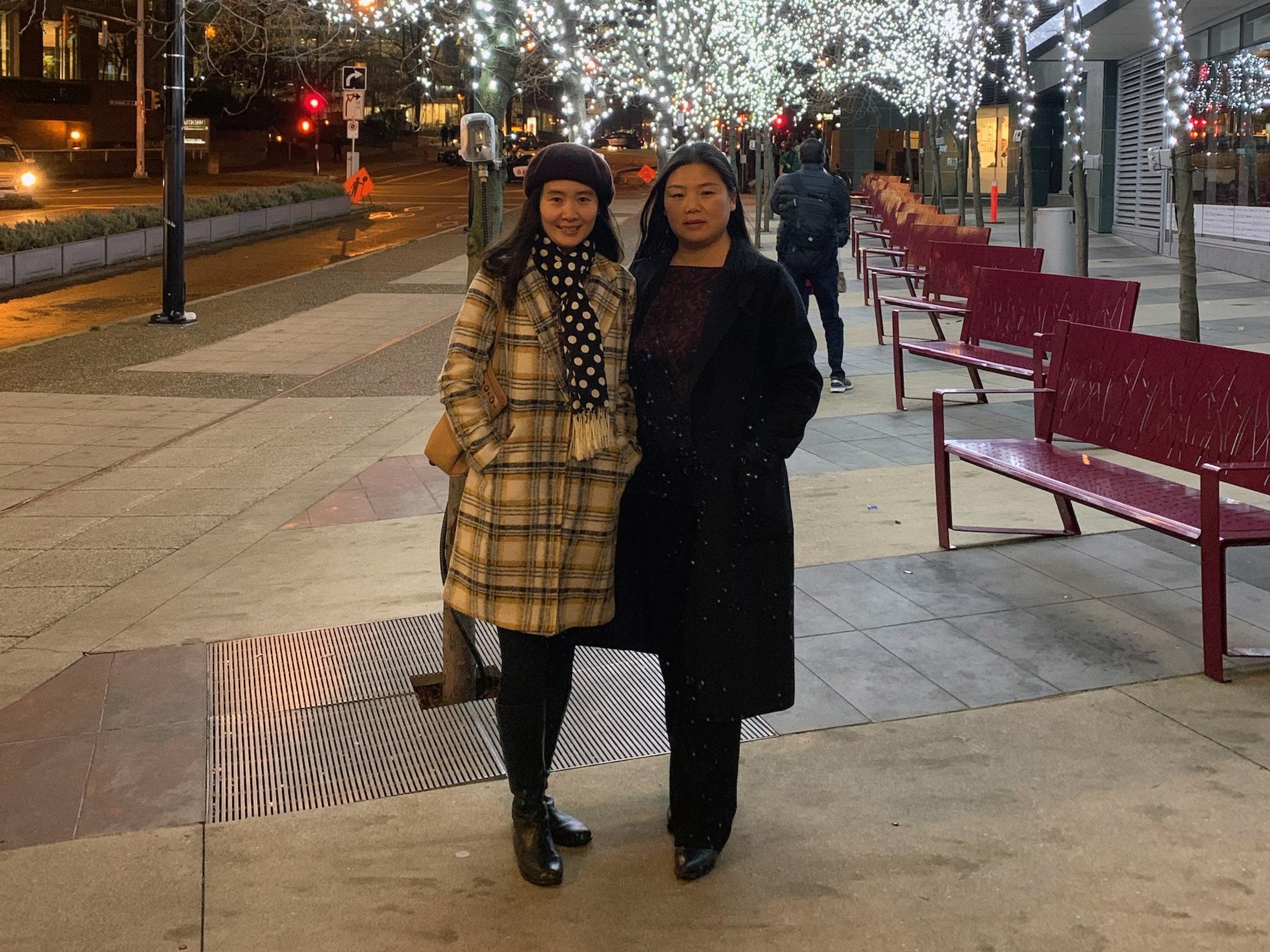SUNY Oswego's Jing Lei (left) and former visiting scholar Yufang Rao worked together to produce the first textbook for the Chinese audience on cultural anthropology.
A SUNY Oswego faculty member recently played a direct role in the worldwide growth of the study of cultural anthropology.
Jing Lei, associate professor and chair of anthropology at SUNY Oswego, recently published a book to introduce the ideas of cultural anthropology to a Chinese audience. “Cultural Anthropology: A Toolkit for Cross-Cultural Communication,” written with former visiting scholar Yufaung Rao, was recently published in China by Tsinghua University.
“Cultural anthropology is basically the examination of cultural diversity, and the similarities across different human groups,” said Lei.
Lei said that she believes cultural anthropology is an important field of study, “especially in the context of what’s going on in the U.S., and in the world,” she said. “We do need more knowledge about how human beings share some common problems, challenges. But at the same time, we are different.”
The book came together after Lei's work with Rao, who was her visiting scholar in Oswego from 2019 to 2020.
“When she was here, that was her first time learning about cultural anthropology,” Lei explained. “I shared with her that it’s very important for her to basically know some basic knowledge about anthropology.”
This led to Rao participating in Lei’s course on cultural anthropology, which ended up “eye-opening” experience for her. Because of this, Rao wished to introduce the concepts to her students back in China.
“In China right now, because of the booming economy, a lot of things are going on regarding putting emphasis on engineering, science, technology, et cetera,” Lei said. “Basically, a social science is not developed as much as science, engineering or business. So, we figured out that this would be a perfect area we can work on… to promote cultural diversity and world awareness in China.”
Cultural connections
Lei says that it’s important to introduce concepts like cultural anthropology to world economies, especially ones as large as China’s. When it came to putting together the book, Lei was able to tap into her expansive knowledge from her time as a professor at Oswego.
“I was trained in cultural anthropology, I have been teaching this course for over 10 years, so that’s why this textbook is mainly written by me. I think, when I’m writing this book, I’m basically reflecting upon my past experience teaching this course at SUNY Oswego,” Lei explained.
“However, I realized that this textbook will be published in China, so it will be accommodating a Chinese audience.”
This is where Rao played a role, helping to ensure it was properly tailored to that Chinese audience.
“This is how my visiting scholar came in, to provide me with suggestions and feedback regarding how we could actually try to cater to the Chinese audience,” said Lei. “She shared with me a lot of wonderful suggestions regarding the revision of topics, coming up with warmup questions and exercises.”
Rao’s role in the book didn’t end there, however. She also played a major role when it came to marketing the book in China. Rao reached out to many teachers and schools that would possibly have a use for the book, helping it to reach as wide of an audience as possible.
Lei and Rao have continued to collaborate on other projects, including a research project about “media-induced language changes in female address terms in China,” which they presented at the 2020 Conference on Asian Linguistic Anthropology. An article detailing their work was published in the Journal of Asian Linguistic Anthropology.
They plan to present another paper at the International Gender and Language Conference in June, and have also conducted research on visiting scholars’ experience of learning and using English, presenting their research on this at the 2019 American Anthropological Association meetings.
Ultimately, “Cultural Anthropology: A Toolkit for Cross-Cultural Communication” was published by Tsinghua University, which Lei compared to Harvard.
“It’s a very prestigious university, so I and my collaborator are very proud of publishing this book in the most prestigious publication,” she said. One of the main benefits of being published by Tsinghua, Lei explained, is the immediate credibility that comes with the university’s name.
Lei also said that she feels the experience of writing the book can help her teaching here at Oswego, saying the experience gave her an opportunity to “brainstorm and reflect upon what I have learned, from my students and also from my past research experience.”
She also said that she wished to thank the Office of International Education for the opportunities that they provide. Lei credits Joshua McKeown, associate provost for international education and program for providing "wonderful opportunities to host the visiting scholars."
"I hope that in the future, when the pandemic’s done, we’re able to have more international scholars coming here, learning new knowledge and then they can become a kind of liaison or ambassador between the United States and other countries,” Lei said.
-- Written by Dylan McGlynn of the Class of 2021




